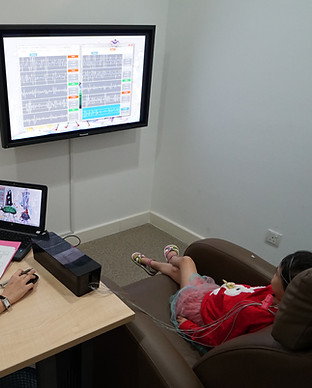ECG @ Electrocardiogram

The electrocardiogram, also referred to as ECG, is a non-invasive diagnostic test that evaluates your heart's electrical system to assess for heart disease. It uses flat metal electrodes placed on your chest to detect the electrical charges generated by your heart as it beats, which are then graphed. Doctors can analyse the patterns to get a better understanding of your heart rate and heart rhythm, identify some types of structural heart disease, and evaluate cardiac efficiency.
There are a variety of characteristic changes that occur with different heart concerns, and your doctor can look at your ECG wave patterns to see if they are suggestive of certain types of heart disease.
Many doctors order an ECG as part of a yearly medical examination to screen for heart disease. This may apply to you if:
-
You have had heart disease in the past
-
You have a medical condition that predisposes you to heart disease, such as hypertension, diabetes, high cholesterol, or inflammatory disease
-
You have other significant risk factors for cardiac disease
An ECG may also be recommended if you have signs or symptoms of heart disease, such as chest pain, shortness of breath, light-headedness, dizziness, or fainting spells. Likewise, if you have signs of stroke, such as vision changes, numbness, weakness, or communication problems, you are also likely to need an ECG because some types of heart disease can cause a stroke.
If you have heart disease, you may need periodic ECG testing to evaluate whether your disease is worsening and to monitor the treatment effects of your heart medications.
Interpreting the Results
The electrical signals generated from the electrodes are processed to obtain the heart’s electrical activity from 12 different angles, each of which shows a separate tracing. By examining any abnormalities on the ECG and which leads they are stemming from, doctors can get important clues about the status of the heart.
Doctors will be able to explain your results to you. Among many things, an ECG can indicate:
-
Heart arrhythmias, such as premature ventricular complexes or atrial fibrillation
-
Whether you have conduction abnormalities, which result from issues regarding how the electrical impulse spreads across the heart (such as with a bundle branch block)
-
Signs of an ongoing or a prior myocardial infarction (heart attack)
-
Whether you have signs of severe coronary artery disease (CAD), such as stable angina or unstable angina
-
If your heart muscle has become abnormally thickened, as in hypertrophic cardiomyopathy
-
Signs of congenital electrical abnormalities, such as Brugada syndrome
-
Electrolyte imbalances, particularly elevated or decreased levels of potassium, calcium, or magnesium
-
Congenital (from birth) heart defects
-
Infections involving the heart, such as pericarditis, which is an infection of the protective tissue surrounding the heart
For further information please contact SOL Integrative Wellness Centre at 03-4023 5689.
BENEFITS OF THIS HEART SCREENING PACKAGE:
✅Non-invasive
✅Painless
✅Radiation-free
✅Aids in identification of diabetes, high cholesterol or hypertension risk
✅Assess the risks of getting heart attack or stroke
✅Monitor and guide patient’s treatment & lifestyle changes
✅Comfortable procedure
✅Comprehensive and detailed report
✅Quick result (ready in 20 minutes)
✅Comes with doctor’s interpretation & recommendation
WHO SHOULD GO FOR THIS SCREENING?
People who experienced:
- High blood pressure
- Diabetes
- High cholesterol
- Chest pain / tightness / discomfort
- Racing or irregular heartbeat
- Shortness of breath
- Lightheadedness
- Dizziness
- Fatigue
- Swelling on legs or feet
- Numbness
- Indigestion / heartburn feeling











